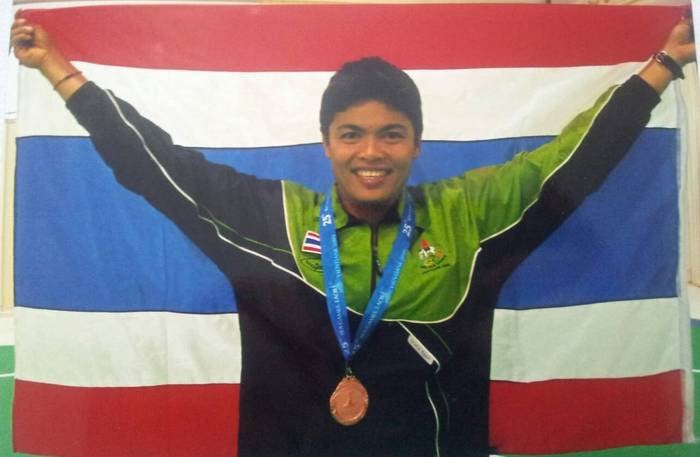Opinion: Phuket’s only woman lifeguard stands tall

Jongdee Haemkaew, 35, from Songkhla, is the assistant sport and recreational manager at Le Meridien Phuket Beach Resort. A former taekwondo athlete with a bachelor’s degree in health and sport science from Thaksin University in Pattalung, Ms Jongdee is the first female lifeguard on Phuket and one of the first to be certified by Surf Life Saving Australia. She has been a lifeguard for 10 years.
Here, she talks about her motivation to become a lifeguard, the skills needed to be able to save lives and the importance of such a service on Phuket.
PHUKET: I love rescuing people. Before I became a lifeguard, I saw many people drown in the ocean and while I always wanted to save them, I couldn’t. All I could do was call for help and that was never enough for me.
I came to Phuket in 2005 to train to become a lifeguard at Le Meridien Phuket Beach Resort. I had never done it before, but I knew I could. I have trained with David Field, chairman of Cudgen Headland Surf Life Saving Club in Australia, since my first year in Phuket.
Mr Field saw that I had strong swimming skills, so he sent me to train in life-saving skills in Australia in 2007.
The more training lifeguards have, the safer the lifeguards and the swimmers they protect will be. Lifeguards do not only have to save others’ lives; in the process they also have to preserve their own.
It is imperative that lifeguards are healthy and have strong bodies. Lifeguards who are not trained well enough can make life-saving operations more dangerous.
Lifeguards must know how to perform cardiopulmonary resuscitation and how to safely bring a swimmer, sometimes more than one at a time, back to the beach in high tide or in strong currents.
Some of the most difficult situations we face as lifeguards are when groups of people are in trouble in the water. We only have three lifeguards on duty, and sometimes entire families need our help.
The other lifeguards and I have to make multiple trips to the swimmers in order to get everyone safely to shore. This is tiring and dangerous, and there were many rescues during which I thought I would die.
But with only about 100 lifeguards on Phuket, It is not just my beach that is lacking sufficient life-saving staff. More lifeguards would be hugely beneficial for the island, but it would be even better if people could learn to save themselves and each other.
I have seen many Australian parents teaching their kids how to swim safely while they enjoy their weekends on the beach. I would love to see relevant offices on the island hold lifeguard training programs for Phuket residents, as is done in Australia.
Residents could be taught to stay ashore during dangerous tides or monsoon sea conditions. They could also learn how important it is to stay inside safe-swimming areas.
Every year in monsoon season, I join the lifeguards on the beach to watch over the swimmers. As the sea in front of our hotel is one of the most dangerous on the island, it is the perfect place to train lifeguards. Our lifeguard training sessions take place once a year, and lifeguards can learn or brush up on essential life-saving information, techniques and strategies.
My word of advice for lifeguards: stay strong and healthy and remain calm when helping people. If you make a mistake, your life could be taken away. Work as a team, as this will make the rescue operation much more efficient.
Latest Thailand News
Follow The Thaiger on Google News:


























